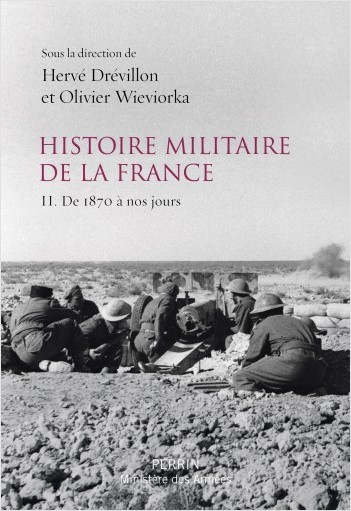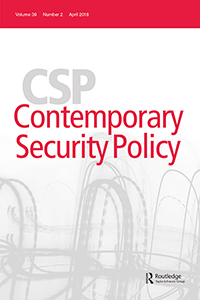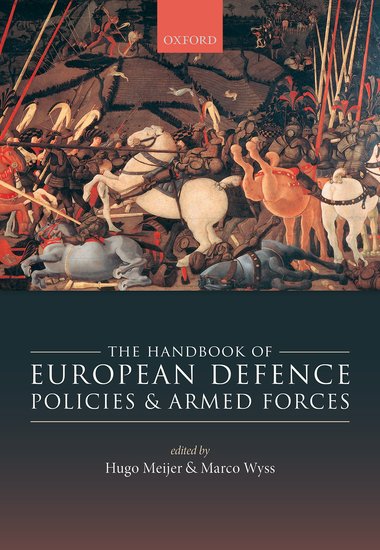I co-authored with my colleague Alice Pannier (Johns Hopkins) an article on French defence policy, which was published in the latest issue of International Affairs.
It is available online here, or in PDF.

I co-authored with my colleague Alice Pannier (Johns Hopkins) an article on French defence policy, which was published in the latest issue of International Affairs.
It is available online here, or in PDF.

I just published a chapter on French defense policy since 1962 in the second volume of the new Histoire Militaire de la France (French Military History) edited by Hervé Drévillon and Olivier Wieviorka. You can access the book here.

My latest paper has been published by Contemporary Security Policy. You can access it online here and in pdf. I reproduce the abstract below.
There is a growing consensus that multinational military operations are often less effective than the theoretical sum of their constitutive parts. Multiple chains of command, restriction on intelligence sharing, and capability aggregation problems can reduce fighting power. However, partners may be necessary to provide legitimacy to an intervention. As such, most studies assume that the state leading a coalition (usually the United States) has to accept a degree of operational ineffectiveness in order to gain political benefits from the participation of junior partners to a multinational military operation. However, such analysis puts all junior partners under the same category, without taking into account the differentiated contributions of those junior partners based on their relative military power and international status. This article explores variation between the junior partners’ contributions and their impact on coalition political and military dynamics. It teases out the implications of adopting a fine-grained analysis of junior partners.

Stephanie Hofmann and I co-authored the chapter on the “Regional Dimension of Diplomacy” published in the Handbook of Diplomacy, co-edited by Thierry Balzacq, Frédéric Ramel and Frédéric Charillon (in French).
Sten Rynning and I co-authored the chapter on France in the Oxford Handbook of European Defence Policies and Armed Forces edited by Hugo Meijer and Marco Wyss.

I published a chapter on the current challenges to the Vienna Document on Confidence and Security-Building Measures in a collective volume on the strategic impact of military exercises edited by Guillaume Lasconjarias, Beatrice Heuser and Tormod Heier. The volume is available here and the chapter can be downloaded here.
I edited the book Raymond Aron and International Relations published with Routledge. Here is the blurb from the publisher’s website.
At a time when the field of International Relations (IR) is diverting from grand theoretical debates, rediscovering the value of classical realism and exploring its own intellectual history, this book contributes to these debates by presenting a cohesive view of Raymond Aron’s theory of IR. It explores how a careful reading of Aron can contribute to important current debates, in particular what a theory of IR can be (and thus, what is within or outside the scope of this theory), how to bridge the gap that emerged in the 1970s between a “normative” and a “scientific” theory of IR, and finally how multidisciplinarity is possible (and desirable) in the study of IR.
My latest paper has been published by Contemporary Security Policy. You can access it online here and in pdf. I reproduce the abstract below.
Most research on strategic narratives has explored their creation, and their interaction with other elements of national power in the conduct of foreign policy. Yet, the issue of how the targeted political communities receive those strategic narratives, and thus how those narratives are likely to have a political impact, is understudied. This article argues that in order to understand the ways strategic narrative are received within a political community, political myths must be taken into account. It introduces a typology of political myths based on their degree of universality and their degree of coherence with other myths, and shows how those factors influence the reception of strategic narratives. These mechanisms are illustrated through a study of the reception of the Russian strategic narrative in France. This approach offers opportunities to assess the differentiated impact strategic narratives have on political communities.

Sten Rynning and I co-authored the chapter on alliances in the newly published Oxford Handbook of International Security.